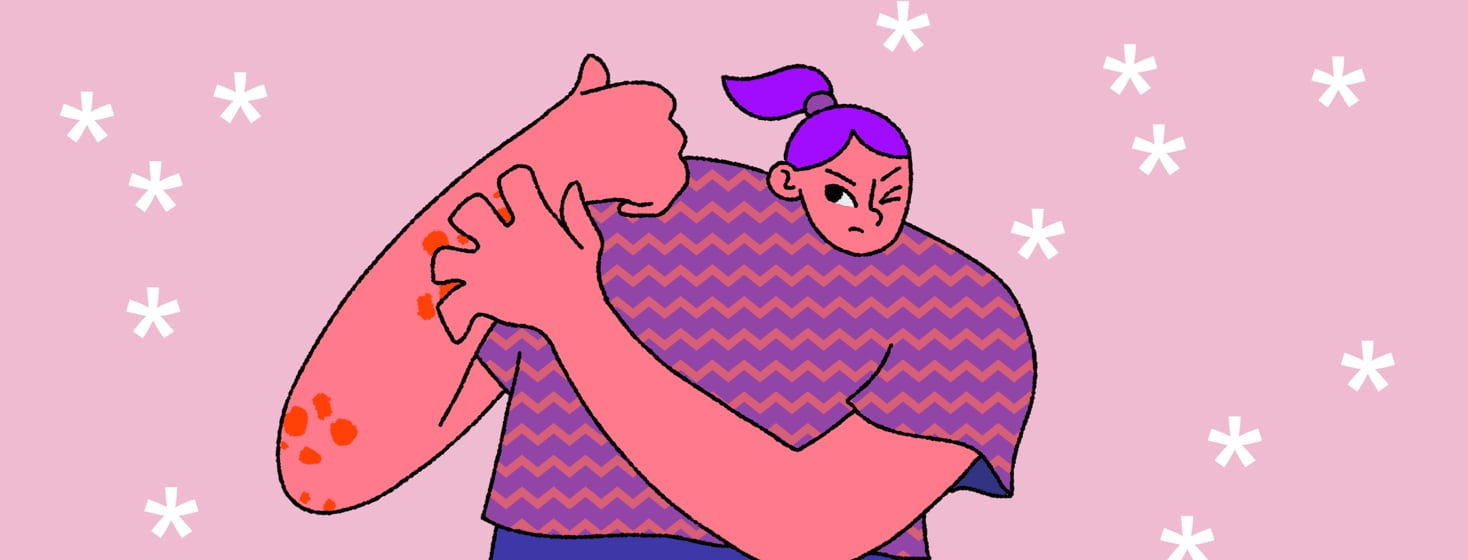Can You Scratch Too Much?
Hives are itchy. I mean really itchy! Miserably itchy. And what do we do when we itch? We scratch. And scratching feels good. Itching feels bad and scratching feels good. So it’s reasonable to assume that the more we itch, the more we scratch. But what about when we scratch too much? Is there such a thing? I would argue that, yes, there is such a thing as scratching too much. There are a number of complications that can arise from scratching too much, and I wanted to share those with you as well as some tips to help with scratching.
Scratching with hives and allergies
Between severe allergies and hives, it’s easy to say that I’ve done my fair share of scratching, and as a result, it’s caused some issues. Before getting on antihistamines, I would scratch so much that I would break the skin. I’ve woken up before to blood stains on my sheets because I just couldn’t curb the itch. But scratching so much that you make yourself bleed can lead to other issues too.
The skin is the largest organ in the body and the first line of defense against infection. But if scratching breaks the skin open, it can make the body more vulnerable to infection. I learned in my microbiology class many years ago that about 10% of people have MRSA (Methicillin-resistant Staphylococcus aureus) that lives under their fingernails. Generally, this is not an issue, simply a symbiotic relationship between the body and the bacteria. But what if you are that 10% and happen to scratch so much that you break the skin barrier? That could lead to a serious infection! Whether MRSA or another infection, scratching can cause some significant issues.
Scars from scratching
Any time the skin is broken, whether it causes an infection or just makes you bleed, the tissue has to be repaired. And usually, that process of repair leaves evidence, also known as a scar. Sometimes scars are just a minor inconvenience and eventually disappear altogether. Other times, scars are permanent and can cause other issues. Scars aren’t necessarily good or bad, but can definitely result from scratching.
Many of us with hives have been prescribed different creams or ointments to help curb itching or attempt to quell the inflammation that comes with hives. But if you read the fine print in the directions of these salves, it probably says something like “do not apply to broken skin”. Meaning, if you’ve scratched to the point that you’ve caused bleeding or any kind of sore, using the prescribed medication might not be advised. And if you did apply it to broken skin, it would probably burn like the dickens too!
Tips to avoid scratching
I am no angel when it comes to scratching. I’ve done my fair share and caused all of the above. So what in the world can be done about this itching? I have no magical cure for you, but just some tips that might help prevent further problems from developing. First, cut your nails. If you don’t have long nails, you can’t scratch. Mittens are another good way to stop itching, especially if you scratch at night when you’re asleep. Aside from anti-itch creams, which are typically steroid-based, you could dry Benadryl cream or spray, which has an antihistamine that could help lessen the itch. Applying heat or cold can also help stop the itch, even if it’s just for a while.
Scratching isn’t all bad, I say as I sit here scratching an itch on my calf. But too much scratching can definitely cause problems. Have you had any complications from scratching too much? Do you have any more tips for helping stop the itch? Let us know in the comments, we would love to hear from you!

Join the conversation